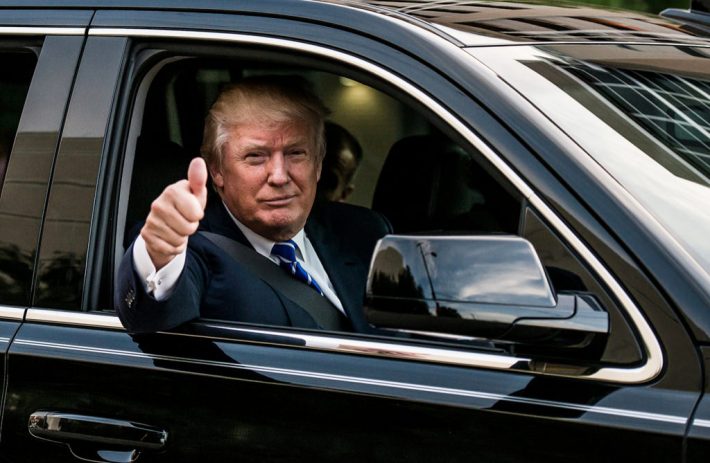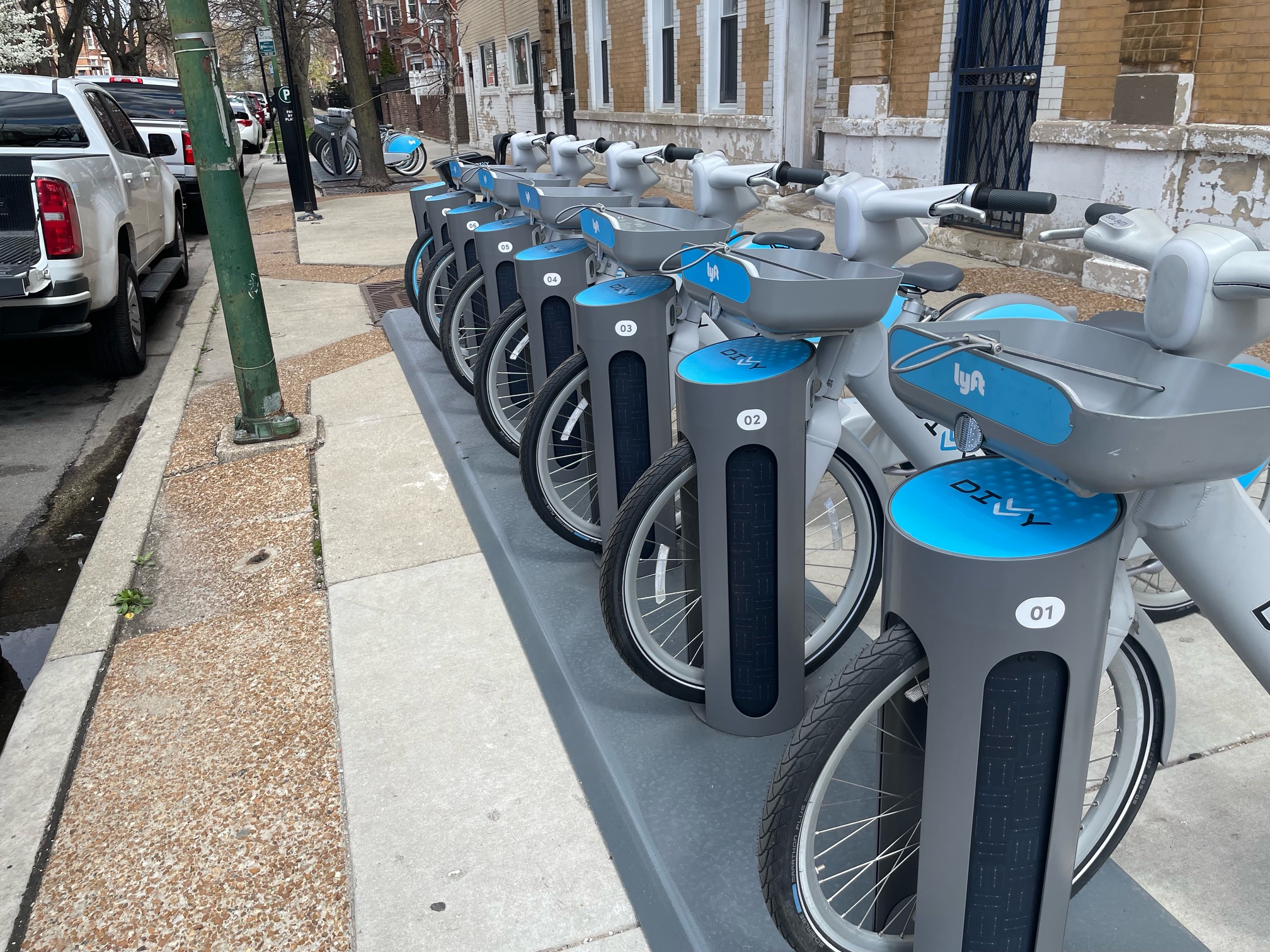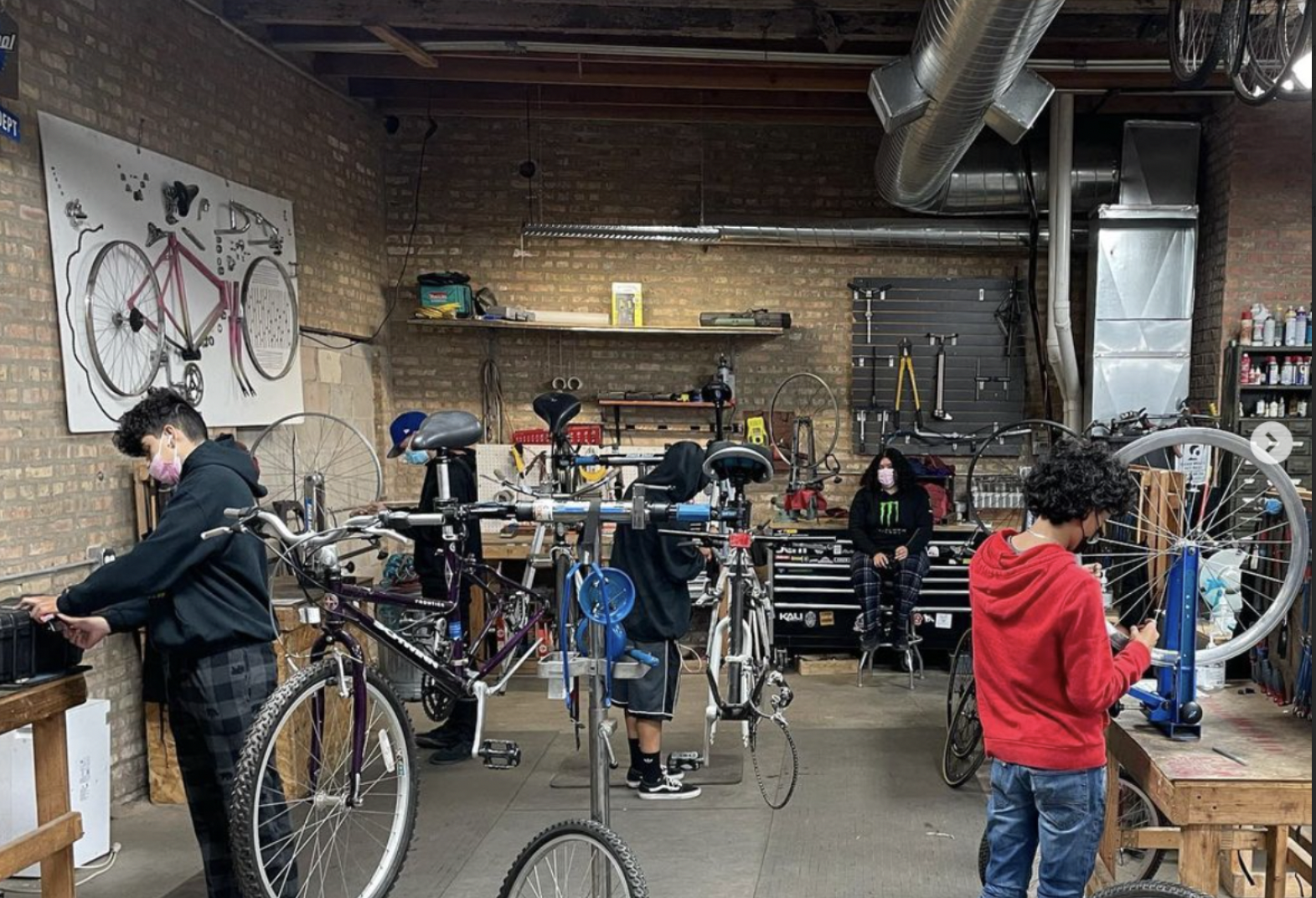What the Lockbox Law — And Trump Win — Mean for Local Transportation
6:00 PM CST on November 9, 2016

It’s hard to predict what last night's election means for the future of sustainable transportation in the U.S. But as Streetsblog editor-in-chief Ben Fried wrote this morning, the fact that the Republican party doesn’t rely on city dwellers for votes, and the president-elect’s rural base doesn’t include many fans of better transit and walkable, bikeable streets, is not a good sign.
Amid all the shock over the unexpected election results, news of another significant development for Illinois transportation got lost in the shuffle. Voters in this state passed the so-called Safe Roads Amendment ballot initiative by nearly 80 percent, far more than the 60 percent needed to make it law.
This controversial amendment to the Illinois constitution will require that all funds collected through gas taxes, tolls, driver's license fees, and city stickers be captured in a "lockbox" to prevent them from being used for non-transportation purposes. The ballot question asked citizens if they supported earmarking this revenue for "administering laws related to vehicles and transportation, costs for construction, reconstruction, maintenance, repair, and betterment of public highways, roads, streets, bridges, mass transit, intercity passenger rail, ports, airports, or other forms of transportation, and other statutory highway purposes."
Originally the Metropolitan Planning Council, the Active Transportation Alliance, and the Center for Neighborhood Technology supported the amendment, arguing that it would grow the overall transportation budget, which could mean more money for walking, biking, and transit. They also argued that the lockbox would help build support for raising the gas tax by insuring the revenue would go to transportation, not other needs or pet projects. Initially, I was a supporter as well.
But Chicago’s two major newspapers oppose the initiative, arguing that the campaign was fueled by cronyism between lawmakers and road-building and labor interests, and that politicians shouldn't need a constitutional amendment to force them into fiscal discipline.
Other organizations and progressive commentators, including Streetsblog’s Steven Vance, pointed out other additional issues with the amendment. They argued proponents has misrepresented how much money had been previously diverted from the transportation fund, and that tying lawmakers’ hands on spending decisions could cause problems if a real financial crisis or natural disaster arises.
They noted that the language of the legislation didn’t specify whether walking, biking, and transportation funding would be eligible for funding, or whether local governments would be able to spend transportation revenue on things like streetlamps and snow plowing. Eventually the Center for Neighborhood Technology dropped their support for the amendment, as did I.
After the ballot initiative passed, today I reached out to MPC (an official supporter of the amendment), Active Trans, and CNT to get their thoughts on the news, as well as what the Trump presidency might mean for transportation in the Chicago region.
“We supported the amendment and I still think it’s a good step forward,” said MPC senior fellow Jim Reilly. “Some clarification is going to be needed, so we’re going to be following on some legislation that will hopefully clarify the amendment – that’s not unusual [for ballot referendums].”
Reilly also believes the new law will be useful for raising the $43 billion MPC has projected that Illinois will need to spend over the next decade to get it’s transportation infrastructure in a good state of repair. “Polls show that people generally don’t trust that raising the gas tax will result in more money going to transit or fixing roads. This will increase confidence in that.”
“[The amendment is] definitely a positive from Active Trans’ point of view,” said the advocacy group’s director Ron Burke. He said they would be working MPC and other groups to ensure that as the specifics of the legislation are worked out, funding for sustainable transportation is maintained and hopefully expanded. “Whatever funds go towards transportation, it’s key that we get our piece of the pie.”
CNT’s vice president for policy Jacky Grimshaw, who recently wrote a blog post against the amendment, agreed that it’s going to be crucial that the statutes that are introduced to lay out the specifics of the new law make it clear that walking, biking, transit, and planning can be funded.
She seemed resigned to the passing of the amendment. “It is what it is,” she said. “The people have spoken. There’s no use cussin’ about it.”
The same can’t be said for the election of a misogynist, race-baiting, anti-immigrant, Islamophobic real-estate mogul and reality TV star with no prior political experience.
Reilly, Burke, and Grimshaw all said it’s probably too soon to say what affect the Trump presidency will have on transportation in our region, but they were willing to share a few thoughts. (The three advocates either declined to discuss the results of the Illinois election or said it doesn’t appear the local balance of power has changed much.)
“We are going to fix our inner cities and rebuild our highways, bridges, tunnels, airports, schools, hospitals,” Trump said in last night’s victory speech. “We're going to rebuild our infrastructure, which will become, by the way, second to none. And we will put millions of our people to work as we rebuild it.”
“Certainly the president elect – I sort of hate to use that term – hasn’t talked at all in specifics regarding transportation,” Reilly said. “He did talk about infrastructure, but he didn’t say how was going to actually fund it. To guess what his actual policies will be is an interesting game, but I don’t think it will get you very far.”
Burke brought up one reason to be cautiously optimistic that Trump won’t be completely awful on transportation. “I don’t think we’ve ever had a president from New York City, the public transportation capital of the U.S.” he said. “Given that he’s a longtime New Yorker, hopefully he’s aware of the benefits of transit, walking and biking.”
While federal grants for transportation projects have flowed freely to Chicago during the Obama administration, Burke said there’s no way to tell whether the election of Trump, who often used the Windy City as a whipping boy during the campaign, will result in less federal funding coming our way. “We’ll just have to wait and see,” he said.
Grimshaw said she’s skeptical Trump’s claims that he will make a huge investment in transportation infrastructure because he has also pledged to lower taxes. “That’s a return to the policies of George W. Bush,” she said. He cut taxes and started three wars, so Barack Obama was left with a huge deficit that he’s been working to bring down since 2008. That’s ‘voodoo economics,’ as George Bush Sr. said about Ronald Reagan.”
“The only thing I can say is ‘uncertainty,’” Grimshaw said. “Uncertainly about what the Safe Roads Amendment will mean, and uncertainty about what the Trump presidency will mean.”
![]()
Did you appreciate this post? Consider making a donation through our PublicGood site.
In addition to editing Streetsblog Chicago, John writes about transportation and other topics for additional local publications. A Chicagoan since 1989, he enjoys exploring the city on foot, bike, bus, and 'L' train.
Stay in touch
Sign up for our free newsletter
More from Streetsblog Chicago
It’s electric! New Divvy stations will be able to charge docked e-bikes, scooters when they’re connected to the power grid
The new stations are supposed to be easier to use and more environmentally friendly than old-school stations.
Today’s Headlines for Tuesday, April 23
Communities United: Reports of Bikes N’ Roses’ death have been greatly exaggerated
According to the nonprofit shop's parent organization, BNR has paused its retail component, but is still doing after-school programming and looking for new staff.



